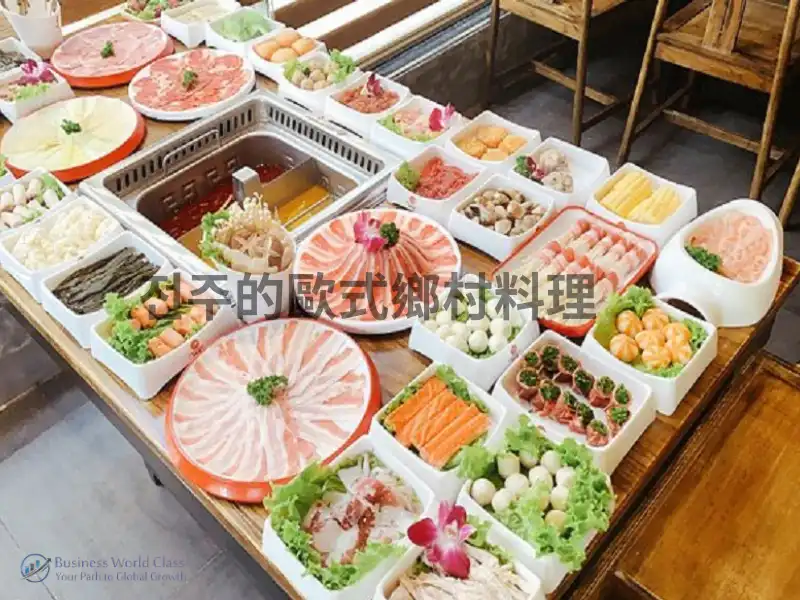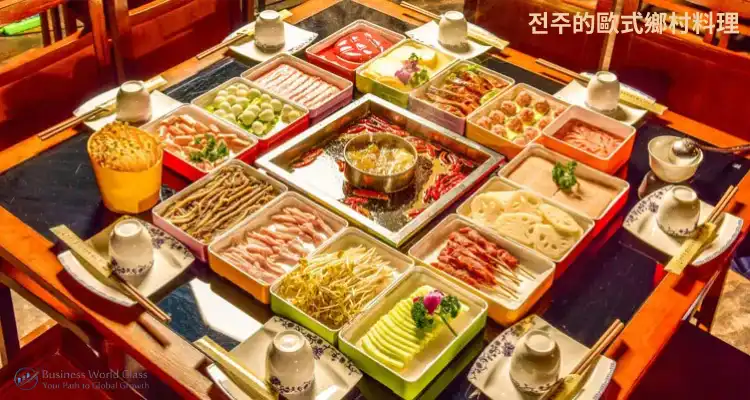Introduction
Jeonju, South Korea, is widely recognized as the heart of Korean culinary traditions, especially known for its bibimbap and vibrant food culture. However, in recent years, a fascinating fusion has been taking shape within the city’s culinary landscape: European village cuisine. This concept blends the rustic, home-style flavors of European countryside cooking with the fresh ingredients and meticulous preparation techniques that Jeonju is famous for.
This article delves into the essence of European village cuisine as found in Jeonju, exploring its origins, key ingredients, notable restaurants, and how it has been adapted to suit the Korean palate.
The Influence of European Village Cuisine
European village cuisine is rooted in the simple, hearty, and wholesome dishes of rural Europe. Unlike haute cuisine, which focuses on elaborate presentations and fine dining, village cuisine emphasizes local ingredients, traditional cooking techniques, and a strong connection to family and community.
Across different regions of Europe, village-style cuisine varies significantly:
- French Countryside Cuisine: Think coq au vin, ratatouille, and rustic baguettes served with creamy cheeses.
- Italian Rustic Cooking: Handmade pasta, wood-fired pizzas, and slow-cooked stews like osso buco.
- German and Austrian Comfort Foods: Hearty sausages, schnitzels, and potato-based dishes.
- Spanish and Portuguese Farmhouse Flavors: Paellas, roasted meats, and seafood stews cooked with fresh herbs and olive oil.
In Jeonju, chefs and home cooks have embraced these European culinary traditions while infusing them with their creative touch.
How Jeonju Embraces European Village Cuisine
Jeonju’s reputation as Korea’s food capital makes it an ideal place for culinary experimentation. The city’s chefs have adopted European village cuisine in various ways:
1. Use of Local, Fresh Ingredients
European village cuisine relies heavily on locally sourced ingredients, a concept that aligns perfectly with Jeonju’s farm-to-table culture. Farmers’ markets in Jeonju provide fresh vegetables, meats, and dairy products, allowing for authentic European-style cooking with a Korean touch.
2. Fusion of Flavors
Restaurants in Jeonju have creatively adapted European village recipes by incorporating local flavors. For example:
- Kimchi Ratatouille: A twist on the French dish by adding fermented kimchi for a bold umami taste.
- Gochujang Paella: Spanish-style rice infused with Korea’s famous red pepper paste.
- Bibimbap with European Herbs: Traditional Korean mixed rice with rosemary, thyme, or basil for an aromatic twist.
3. Bakeries and Cafés with European Inspiration
Jeonju has seen a rise in European-style bakeries and cafés, offering rustic pieces of bread, pastries, and coffee. Some must-visit spots include:
- Maison Boulangerie: Specializing in French croissants, baguettes, and tarts.
- Dolce Italia: Serving authentic Italian-style pizzas and handmade pasta dishes.
- Bierhaus Jeonju: A German-inspired pub featuring homemade sausages, pretzels, and craft beer.
Notable European Village Cuisine Restaurants in Jeonju
Several restaurants in Jeonju have embraced European village cuisine, providing an authentic yet localized experience. Here are some noteworthy spots:
1. La Petite Maison
This charming French bistro in Jeonju serves dishes inspired by the French countryside, such as beef bourguignon and tarte flambée. The use of locally sourced meat and vegetables gives each dish a fresh and comforting taste.
2. Osteria di Jeonju
An Italian trattoria featuring homemade pasta, slow-cooked ragù, and rustic Tuscan bread. The chef incorporates Korean seafood, such as abalone and clams, into classic Italian dishes.
3. Bavarian Hearth
For those craving hearty German fare, this restaurant offers dishes like pork knuckles, bratwurst, and sauerkraut. The beers are locally brewed but follow traditional German brewing techniques.
The Future of European Village Cuisine in Jeonju
The popularity of European village cuisine in Jeonju continues to grow, driven by locals’ increasing appreciation for diverse flavors and international dining experiences. Some trends to watch include:
- More Fusion Experiments: The blend of Korean ingredients with European cooking methods is likely to evolve further, producing exciting new dishes.
- Sustainability Focus: Just as European village cuisine values farm-fresh produce, Jeonju’s restaurants are leaning towards organic and sustainable food sources.
- Culinary Tourism Boom: As more travelers visit Jeonju, the demand for European-style eateries will increase, bringing more innovative restaurants to the scene.
Conclusion
Jeonju, while deeply rooted in Korean culinary traditions, has successfully embraced European village cuisine, creating a unique dining experience that blends the best of both worlds. Whether it’s a hearty German schnitzel, a rustic French stew, or an Italian pasta dish with a Korean twist, Jeonju offers a taste of European countryside flavors with a local touch. As this culinary trend continues to grow, it promises to add even more diversity and excitement to the city’s already rich food scene. See More Business World Class



